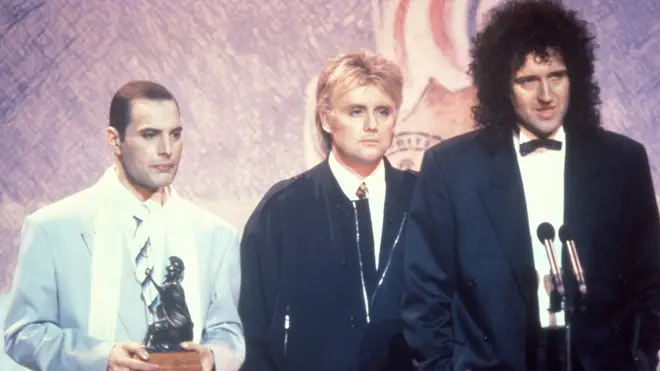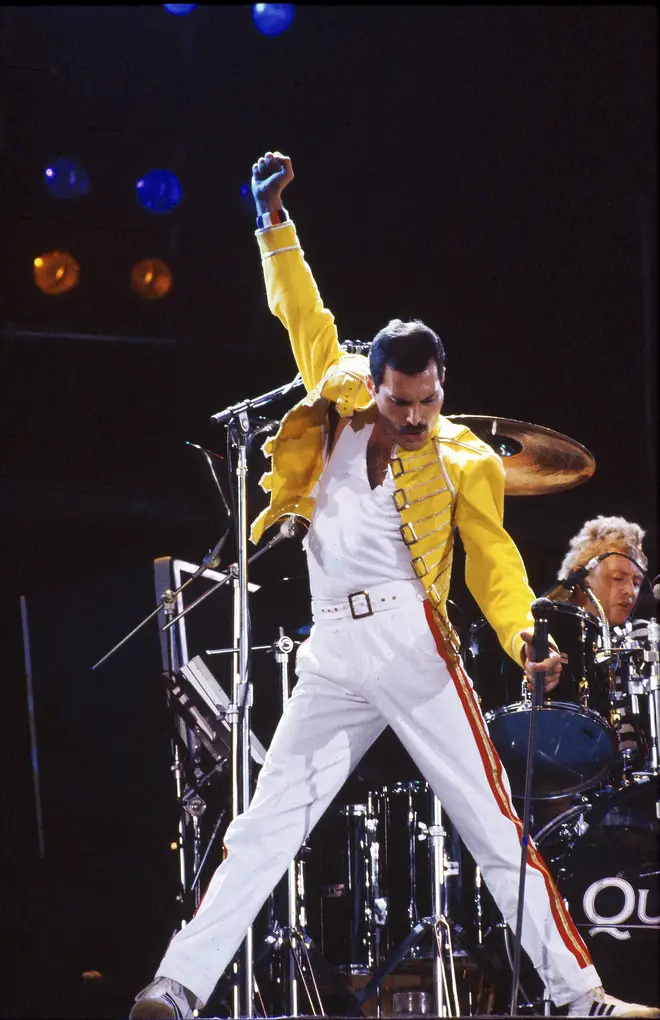On Air Now
Smooth Breakfast with Eamonn Kelly 6am - 10am
2 March 2024, 11:12
February 18, 1990 proved to be an emotional day for many reasons.
It was the final official public appearance from Queen frontman Freddie Mercury, at the 11th Brit Awards at Earls Court.
Privately, the other members of Queen were aware that their enigmatic bandmate and friend was gravely ill, but this was not public knowledge at the time.
Rumours about Freddie's health had been around for years, particularly in tabloids such as The Sun, which claimed he had been tested for HIV/AIDS as early as 1986.
Fans were concerned about Freddie due to their lack of a tour to support their 1989 album The Miracle, though Brian May later said that even they didn't know about how ill Freddie was for years.
"We didn’t know actually what was wrong for a very long time," said May. "We never talked about it and it was a sort of unwritten law that we didn’t, because Freddie didn’t want to.

"He just told us that he wasn’t up to doing tours, and that’s as far as it went. Gradually, I suppose in the last year and a bit, it became obvious what the problem was, or at least fairly obvious. We didn’t know for sure."
In February 1990, Queen appeared to accept the 'Outstanding Contribution to British Music' prize. Freddie Mercury appeared rather gaunt and strangely quiet.
Brian May spoke on Queen's behalf that night, thanking the Brits for the introduction from Chrysalis co-founder Terry Ellis and a testimonial video featuring David Bowie, Phil Collins and others.
It would prove to be Freddie's final public appearance, as he leaned in briefly into the microphone to say: "Thank you ... goodnight."
Freddie kept his privacy for the rest of his life, until November 22, 1991, when he confirmed his diagnosis with an official statement. Just over a day later, he passed away.

Relive the magic of Freddie Mercury in the final trailer for 'Bohemian Rhapsody'
A friend of Freddie Mercury, former Daily Express journalist David Wigg, has given a new interview revealing more about why the Queen singer kept his diagnosis a secret for so long.
Speaking as part of a new BBC documentary, Freddie Mercury: A Life in Ten Pictures, Wigg said he interviewed Mercury in September 1987 and discussed his illness 'off the record'.
David said: "I noticed he had lost weight and he had a mark on his cheek that was apparently one of those marks (Kaposi’s sarcoma) you can get when you get HIV."
Freddie said: "I have almost become a nun. I thought sex was very important to me and I lived for sex and now I’ve completely gone the other way It’s frightened me to death. I’ve stopped having sex."
When David pressed the Queen star, he said that Freddie asked to speak candidly: "David this is very difficult," he reportedly said: "I will tell you as a friend but you have to promise you will not put this in our article."
David then revealed in his interview: "So I said, 'Right, you are saying to me you have had a test?' (And Freddie said) 'Yes. And I am HIV.'"
The journalist then went on to add: "The secret had to be kept because he was still hoping that there could still be some kind of a cure or the drugs he was taking for this illness would help him get through it.

"He put on a brave act to all of his friends but inwardly," David said, adding: "He must have been very scared, there is a time bomb about to go off if you don’t get a cure, isn’t there?"
Elton John previously spoke of Freddie Mercury's incredible spirit right up until his death.
"He was too frail to get out of bed, he was losing his sight, his body was covered in Karposi’s sarcoma lesions, and yet he was still definitely Freddie, gossiping away, completely outrageous," Elton revealed.

Queen's greatest music videos: Brian May breaks down band's biggest hits | Smooth's Video Rewind
"(Freddie would say) ‘Have you heard Mrs Bowie’s new record, dear? What does she think she’s doing?'
"I couldn’t work out whether he didn’t realise how close to death he was or if he knew perfectly well but was determined not to let what was happening to him stop him being himself," Elton John said.
"Either way I thought he was incredible."